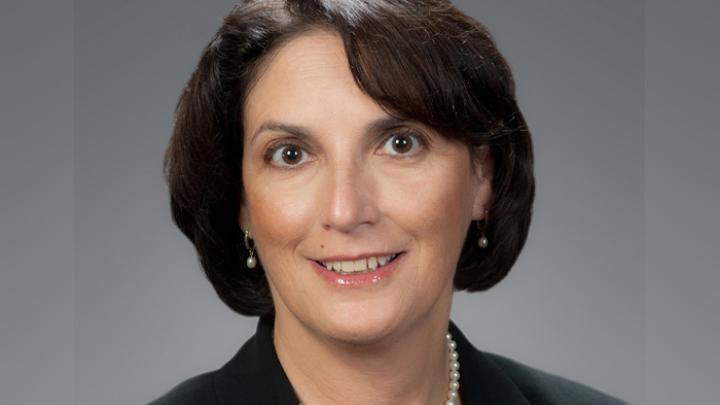
Affiliation: Alumna
Program: PhD, Teaching and Curriculum
Rita D’Aoust says she was “a strange bird” when she arrived at Warner as a nurse who wanted a research doctorate in teaching and curriculum—and who wanted to remain relevant in health professions education and nursing research.
Through the guidance of her advisor and support from faculty and mentors, she was able to customize her coursework to blend three areas: teaching and curriculum, higher education, and clinical research.
“You can have a dream, but you have to be able to know how to achieve that dream,” says D’Aoust, who previously served as an associate professor of clinical nursing at the University of Rochester’s School of Nursing. “Warner allowed me to craft a program plan that met course requirements but also allowed me to reach my goals.”
From understanding ways to construct learning, to the philosophy of education, financial issues in higher education, and issues of access and testing, D’Aoust clearly saw the similarities between the business of education and health care.
That clarity put her on a fast-paced track from student to top-level administrator.
While a student at Warner, D'Aoust approached the School of Nursing about creating a curriculum for accelerated nursing bachelor’s and master’s programs for non-nurses. The “reluctant leader,” as she calls herself, combined her background as a nursing faculty member and program administrator with what she was learning from her assignments, submitted a proposal to the University, and ultimately won state approval. The yearlong program launched a mere three months after the go-ahead, with D’Aoust serving as the program’s director.
The development of online, fast-track prerequisite nursing courses followed, as did clinical scenarios using high-fidelity patient simulation (a form of experiential learning in which a highly sophisticated, computerized mannequin replicates nearly all the essential aspects of a patient-clinical scenario in a real-world environment), which led to D’Aoust’s creation of the University’s Center for Simulation and Education Technology.
After that came the opportunity to help develop a master’s degree in health professions education through a joint program between the University’s School of Nursing, School of Medicine and Dentistry, and Warner School. D’Aoust, who co-developed and taught graduate-level courses in the program, says that “the intellectual stimulation was phenomenal” during the months of planning meetings and that she was pleased she could “continue my passion of interprofessional education.”
That experience—as well as her previous accomplishments—landed her a position last summer at the University of South Florida, where she is associate dean for academic affairs and director of interprofessional initiatives in the College of Nursing. Since starting the job, she has taken the lead role in collaborating with other parts of the University of South Florida to create the Center for Interprofessional Education and Simulation, a testing ground where physicians, pharmacists, nurses, other health care professionals, and students can learn and practice advanced medical techniques and critical clinical decision-making skills. D'Aoust is collaborating to develop “signature residency programs” in the Doctorate of Nursing program; they will combine interprofessional education and practice and use evidence to drive practice changes and outcome management.
“Warner changed the way I think,” says D’Aoust. “It gave me the knowledge and skills to develop innovative, highly successful programs.”